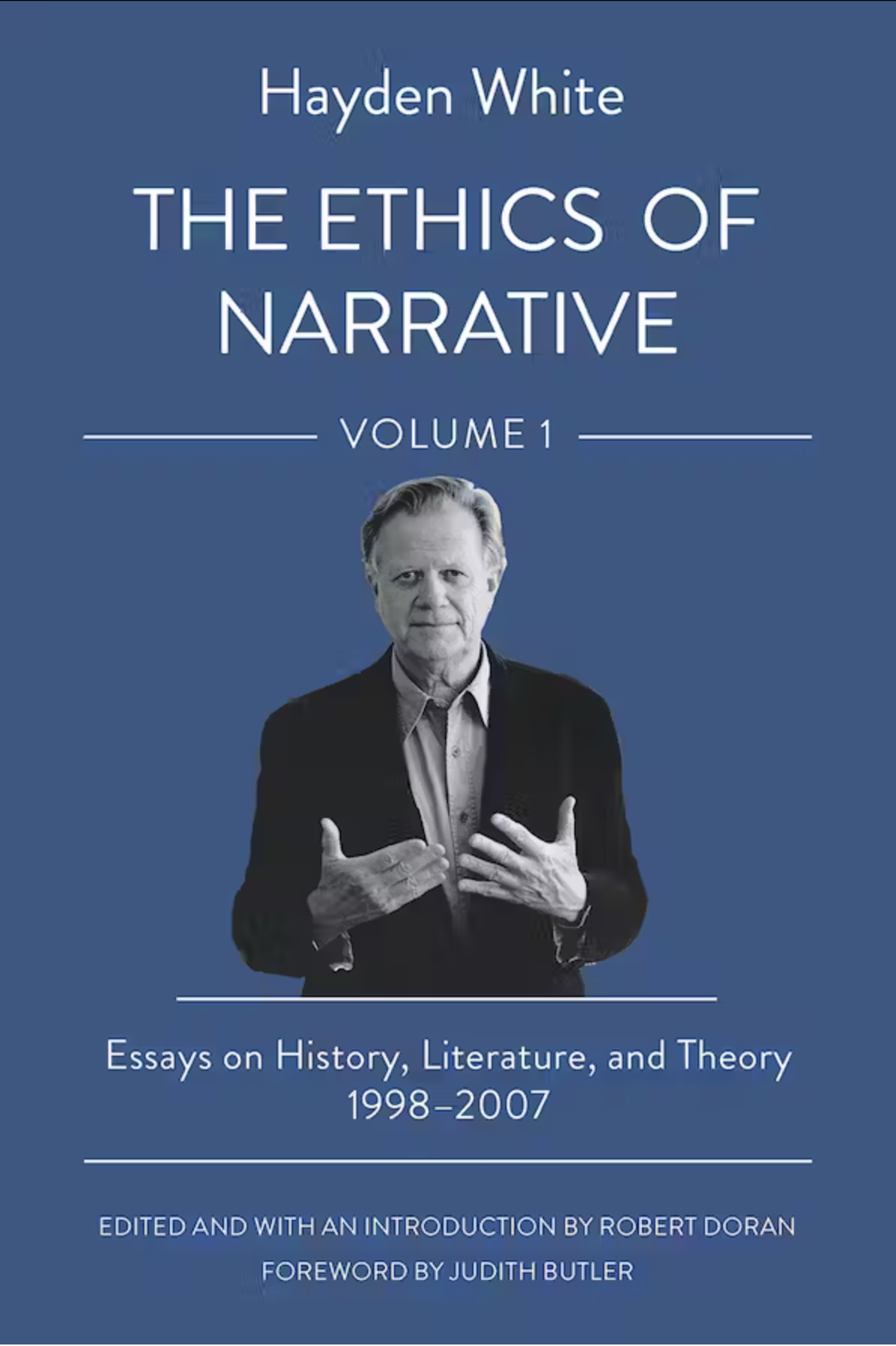The first of what will be two volumes of occasional pieces, The Ethics of Narrative collects 15 of White’s essays and lectures from his final two decades. Most of them are linked by a concern with how to translate an anti-foundationalist approach to history into ethical positions, or at least, as Judith Butler notes in the introduction, into ethical questions. How do the ways we conceive of history and agency create preconditions for practical judgements? How do these judgments in turn alter our perspective on what counts as progressive or reactionary historical change? Some of the essays are of the public intellectual sort, like his opining on patriotism or European identity. Others are rather academic reflections on the metaphysics of Western historiography or on symbols and allegories of temporality.
White never developed a “theory of history” in the traditional sense: that is, as I discussed originally in my 1988 essay for Political Theory, he didn’t seek to “pu[t] historical events together into a meaningful whole, nor [did] he provide a reasoned explanation of why this cannot be done.” He is a theorist of the writing of history. White is not so interested, say, in whether the history of the West is one of enlightenment and progress or one of racism and repetition. He is interested in how accounts of the past, be they Whiggish or Afro-pessimist, construct discrete events into stories that make sense to their readers. White is interested in verbal artifacts as rhetorical constructions, and he thinks hard about the elements that go into the texts that have been passed down to us. Finally, he submits a formalist analysis of “historical writing that [challenges] the way we think about the possibilities of any theory of historical events.”
This concern with rhetoric and stories is everywhere present in The Ethics of Narrative, but what White almost never mentions there is the specific formalist conceptual undergirding of his magnum opus, Metahistory: The Historical Imagination in Nineteenth Century Europe (1973). As I observed in the foreword to the 2014 edition of that book, he “reads his authors through the lens of literary theory, specifically theories of rhetoric and genre.” For him, four styles of “emplotting” historical events make different types of realism possible: Romance in Michelet, Comedy in Ranke, Tragedy in Tocqueville, and Satire in Burckhardt. [In turn,] the philosophers of history privileged particular tropes, or figures of speech: Marx emphasized Metonymy and Synecdoche to organize the historical field, whereas Nietzsche relied on Metaphor, and Croce on Irony.
